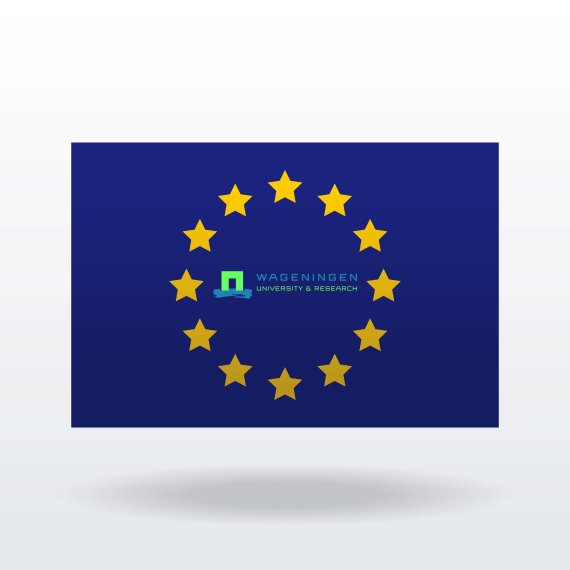<photo: EU.org>
This month, Wageningen researchers saw many of their research projects be granted funding from the Horizon 2020 programme of the European Union. The percentage of approved projects was high. Out of the 31 submitted research projects in the area of food safety, sustainable agriculture and forest management, marine and fresh water research, a total of 18 were approved by the European Union. Furthermore, 4 out of the 13 research proposals in the area of biobased industries were approved, as well as 2 projects in the area of environment and climate. The 24 approved projects mean a total of 20 million euros worth of research turnover at WUR.
Success rate
The success rate of the Wageningen proposals in the area of food safety, sustainable agriculture and forest management, marine and fresh water research was significantly higher than the EU average, explains Peter Jongebloed of the WUR EU Office. In the first phase of this EU-wide call, Wageningen researchers submitted around ninety concept proposals, of which 31 were selected for the second round. For these 31 submissions, researchers had to work out and provide a full research proposal. Out of this group, 18 were approved by the EU, which represents about 20 percent of the initial proposals.
Strategic
It is striking that all four research proposals in which the Animal Sciences Group is involved were approved. ‘The ASG have submitted very strategic proposals’, says Jongebloed. ‘ASG made conscious choices about the subjects they wanted to use, tuned both the proposals and strategy with the French research institute INRA and focused all their energy into these proposals.’ And that resulted in a 100-percent score. The Plant Sciences Group followed a different strategy; they were involved in many more research proposals and ended up with nine approved projects. Quite a few projects see the involvement of multiple Wageningen Sciences Groups.
Competition
The high success rate is a great morale boost, says Jongebloed, because the competition for the European research money is only getting harder. The submissions by South-European researchers are becoming better and the focus has shifted from fundamental research towards innovation. He thinks that the EU’s new approach to selecting research proposals has helped in WUR’s success. In recent years, many research proposals made it to the second round, in which eventually only one or two out of twenty proposals would be honoured. ‘That was truly a pure gamble.’ With its new approach, the EU has a stricter selection in the first round, following which about 30 percent of the proposals is awarded funding in the second round. This works out rather well for WUR, says Jongebloed. ‘The submission of a research proposal with the EU requires a hefty investment; it easily takes up three months of writing and communications with research partners. But with this chance of success, the investment is worth it.’

